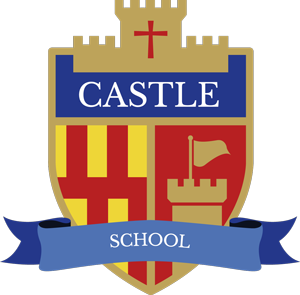At Castle School, assessment is central to enabling every pupil to “let their light shine.” Rooted in the Christian values of love, respect, and the unique value of each individual, our system ensures that every child is supported to achieve their full potential.
Purpose of Assessment
Assessment at Castle School is used to:
- Guide teaching and learning – helping staff adapt lessons to individual needs.
- Celebrate progress – recognising achievements across academic, social, and personal areas.
- Plan for the future – preparing pupils for independence, further education, training, or employment.
Our approach is inclusive and personalised, reflecting pupils’ developmental stages rather than chronological age.
Personalised Pathways and Frameworks
Every pupil follows an assessment pathway suited to their stage of learning. Each pathway is supported by an Individual Learning Plan (ILP), which translates Education, Health and Care Plan (EHCP) outcomes into termly SMART targets.
Pathways and frameworks include:
- Early Years (EYFS & Key Stage 1): Cherry Garden (ages 0–5)
- Pre-Formal (PMLD): Routes for Learning
- Engagement (Complex Needs/ASC): Engagement Framework (exploration, realisation, anticipation, persistence, initiation)
- Semi-Formal: Launching Into framework, building skills towards subject-specific study
- Formal: National Curriculum for subject-based learning below age-related expectations
- Post-14: Accreditation and qualifications (ASDAN, AQA Unit Awards, Functional Skills, Entry Level)
This structure ensures progress is meaningful, measurable, and celebrated across all areas of development.
How We Assess
We use a range of approaches to capture both achievement and growth:
- Formative assessment – daily observations, discussions, and analysis of pupil work to guide teaching.
- Summative assessment – termly and annual reviews (progress sheets, End of Year Reports, EHCP reviews) to measure outcomes.
- Therapeutic and nationally standardised assessment – applied where appropriate, ensuring progress is recognised beyond academic measures.
Breadth and Depth of Progress
We measure progress not only by what pupils learn, but also by:
- Breadth – the range of knowledge, skills, and experiences a pupil gains.
- Depth – how securely learning is embedded, applied independently, and transferred to new situations.
This ensures that both academic learning and wider skills such as communication, independence, and wellbeing are valued equally.
The Spiralised Curriculum
Learning at Castle School follows a spiral curriculum model. Key skills and concepts are revisited at increasing levels of complexity and independence. This means pupils have repeated opportunities to:
- Consolidate previous learning
- Apply skills in new contexts
- Deepen understanding over time
Progress is described through four stages: Emerging, Developing, Deepening, and Functional (long-term application and independence).
Tools and Evidence
- Evidence for Learning (EfL): a digital platform for recording observations, photographs, and videos linked to frameworks, shared with parents.
- Learning Journeys: pupil folders containing ILPs, progress sheets, reports, and evidence print-outs.
- Continuous Monitoring: a regular cycle (assess → plan → do → review) ensures timely interventions.
Tracking, Reporting, and Accountability
- Parents and carers: receive ILPs each term, have access to EfL, attend consultations twice yearly, and receive End of Year Reports. They also contribute to EHCP reviews.
- Governors and trustees: receive regular data reports and Headteacher updates. School performance is scrutinised through monitoring visits, meetings, and committees.
- Quality assurance: achieved through internal and external moderation, work scrutiny, lesson observations, and external reviews by the Trust and professional partners.
Regular progress meetings ensure swift action when pupils are not making expected progress. Data collection is purposeful, focused on reducing variation and ensuring equity.
Looking Ahead
From Early Years to Post-16, assessment ensures pupils are:
- Learning in ways that suit their needs
- Recognised for every achievement
- Making progress in both breadth and depth
- Prepared for adulthood, independence, and community participation
Technology, including Artificial Intelligence (AI), may be used as a supportive tool to enhance learning and communication but will never replace personalised teaching or independent assessment.
Castle School’s assessment system is inclusive, personalised, and rigorous. It values breadth and depth of learning within a spiralised curriculum, ensures every pupil’s progress is recognised, and involves families, governors, and the Trust in supporting all children to achieve their potential.

